Summer often seems to rush by, leaving many people wishing for warmer weather to go swimming. A water heater can save your day by extending the swim season! But you might ask how often you should run your pool heater or how long? We found answers for you!
Using the heater only when the water temperature drops below 78 degrees reduces energy consumption. Raising pool water to the ideal temperature takes about 24 hours. However, this estimate varies depending on the initial water temperature.
In this article, we will go through the best time to heat your pool, the benefits of doing so, as well as how to keep your pool heating expenditures under control. Read on to find out!
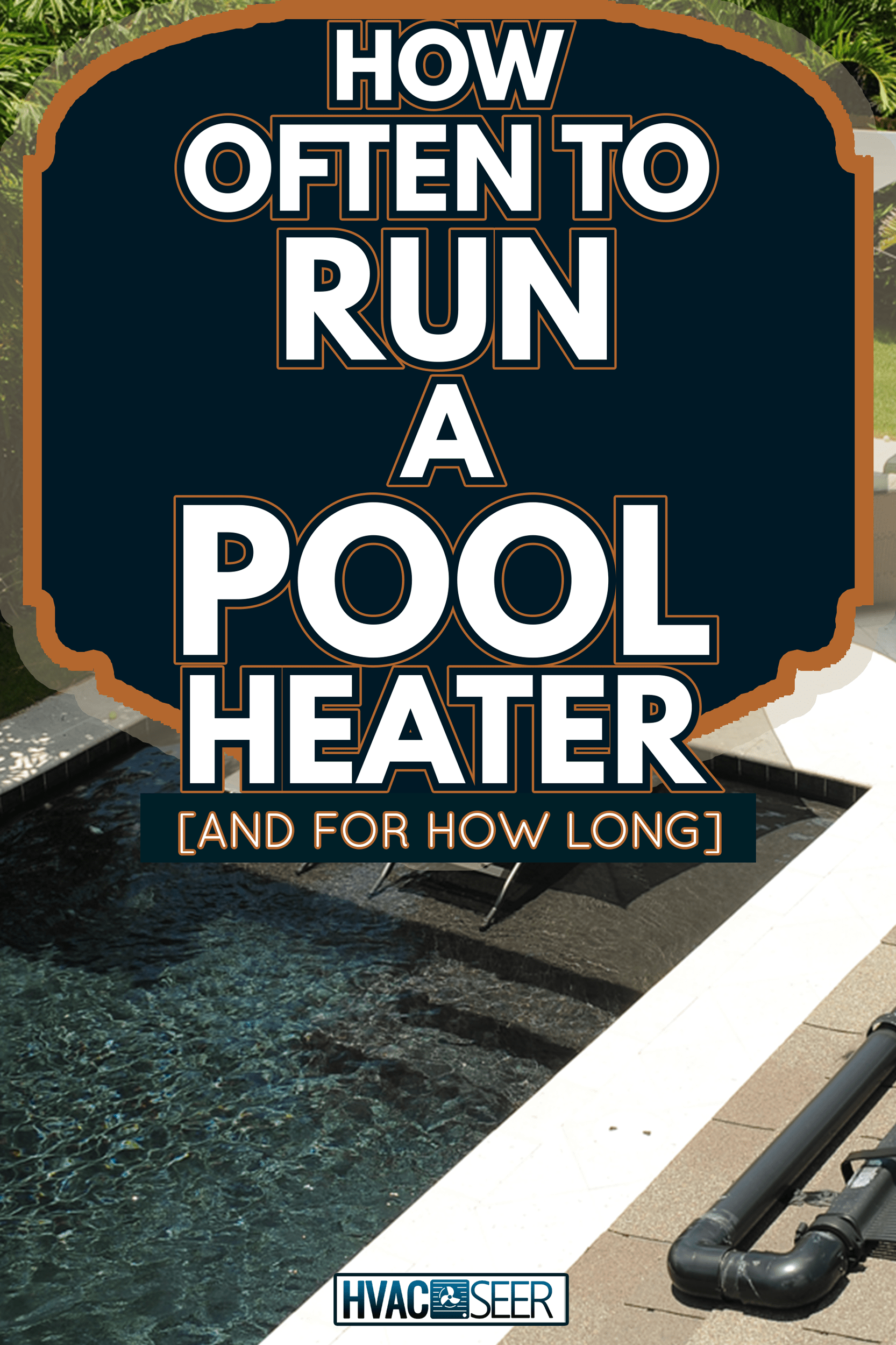
Types of Heater
When it comes to heating your pool, one of the first things you must consider is the type of heater you will use. The five primary types of heaters to look for are listed below.
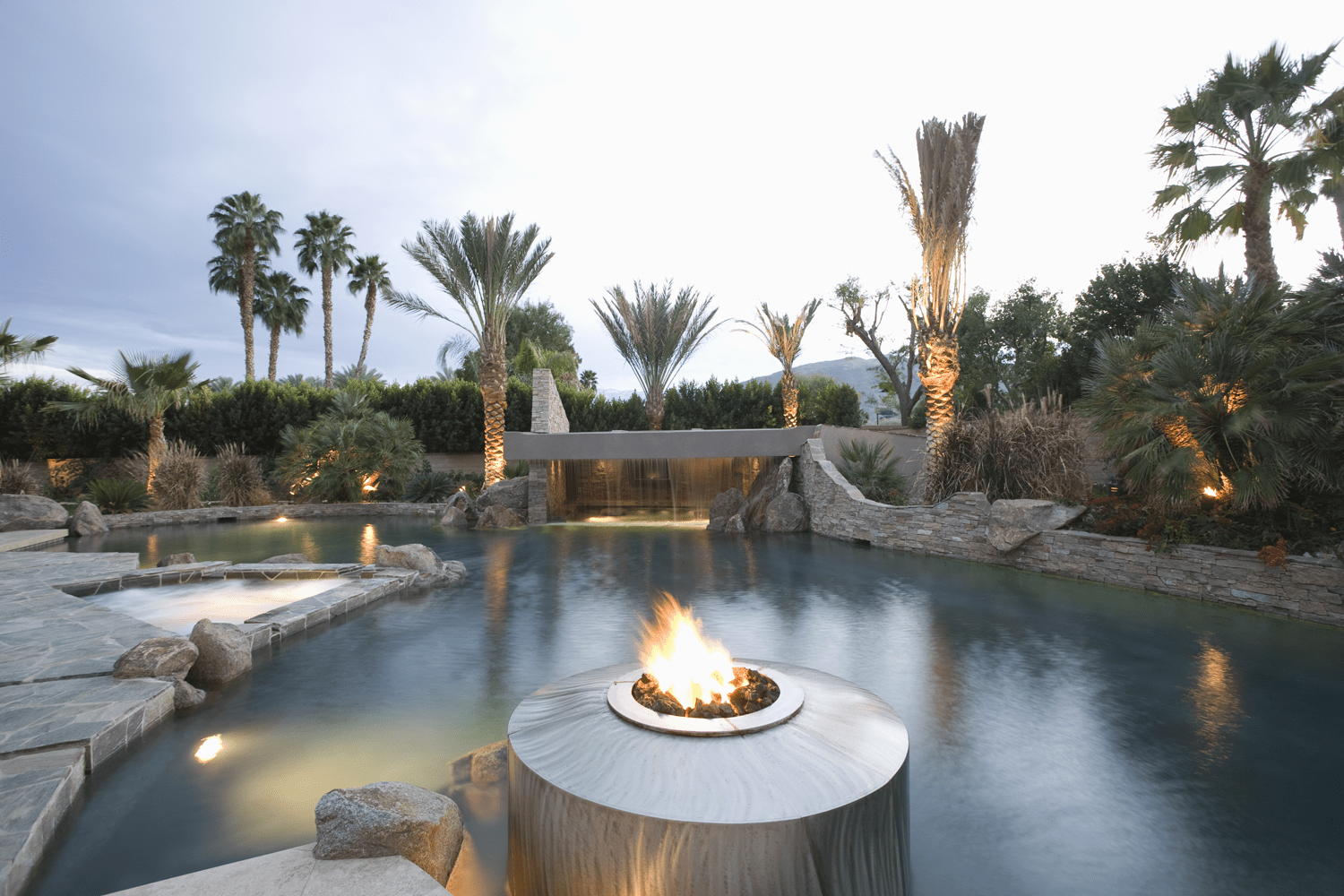
1. Heat Pumps
Heat pumps work in the same way that air conditioners do but in reverse. This sort of heater has a much larger initial cost than many other heaters, but it is more practical, costs less to run from season to season, and has a low maintenance cost.
Also, heat pumps for above-ground and in-ground pools are available from several manufacturers.
However, the heat pump's most significant disadvantage is that it performs poorly in cold temperatures. The water must be heated to at least 45 degrees Farenheight for the heat pump to function.
This heater is ideal if your pool is frequently chilly, but keep in mind that the temperature change is slow.
2. Gas Heater
A gas water heater is similar to a usual household water heater. This is the most efficient way of raising the temperature of your water.
Also, it may improve the temperature by as much as one degree each hour, making it the perfect form of heater to use if you want to keep your pool open all year.
The disadvantage of these heaters is that several inground pools require a permanent gas line, which requires a specialist for installation, and a gas line close to your pool.
Many above-ground heaters use propane tanks, which will need to be replaced and refilled on a regular basis. In all circumstances, the cost of heating your pool varies year to year, based on local fuel prices.
3. Solar Cover
A solar cover is the simplest and most cost-effective way to heat your pool water. A solar cover looks like a giant sheet of bubble wrap that you place directly over the water to cover your pool.
On a bright sunny day, one of these coverings can heat the pool by several degrees by concentrating the sunlight and transferring it to the water. There is no cost for installation or use once you've purchased it. A sun cover can be used on an above-ground or in-ground pool.
This form of heat has two big disadvantages:
- The first is that it needs a sunny day; on a cloudy day or at night, it will not warm your water.
- The second disadvantage is that the warmer water will accumulate near the solar cover even when the pool filter is functioning. This warm water pocket will quickly deplete chlorine, allowing algae and bacteria to flourish, resulting in hazy water.
4. Electric Pool Heaters
Electric pool heaters are one of the most affordable heaters on the market, and they're similar to the modern tankless water heaters you see in a home.
These electric heaters are ideal for heating your shower and would also work well in a hot tub or spa. However, swimming pools frequently have too much water to heat in this manner, and the energy bill will be costly.
Even when utilized with a tiny body of water, these machines can only gradually raise the temperature. Above-ground and in-ground pools can both benefit from electric heaters.
5. Solar Heaters
Aside from solar covers, solar heaters are another type of pool heater that warms water using panels. These solar heaters are similar to the electric heaters mentioned above, except that instead of using electricity, they use solar panels to deliver heat to the water as it goes through the unit.
Solar panels can be installed on the roof or on the ground, among other places. The disadvantage of these heaters is that they will only heat the water slightly, making them ideal for lesser volumes of water or raising the temperature of your pool by a few degrees.
It will also only work on bright days, though it will still function in dim light. Solar panels can sometimes be used to charge cells that allow for nighttime heating.
If you want to cool the water down, you can utilize solar heaters at night to do so. While solar panel heating is available for above-ground pools, it is more commonly seen on inground pools with panels permanently installed on the roof.
Heater Size
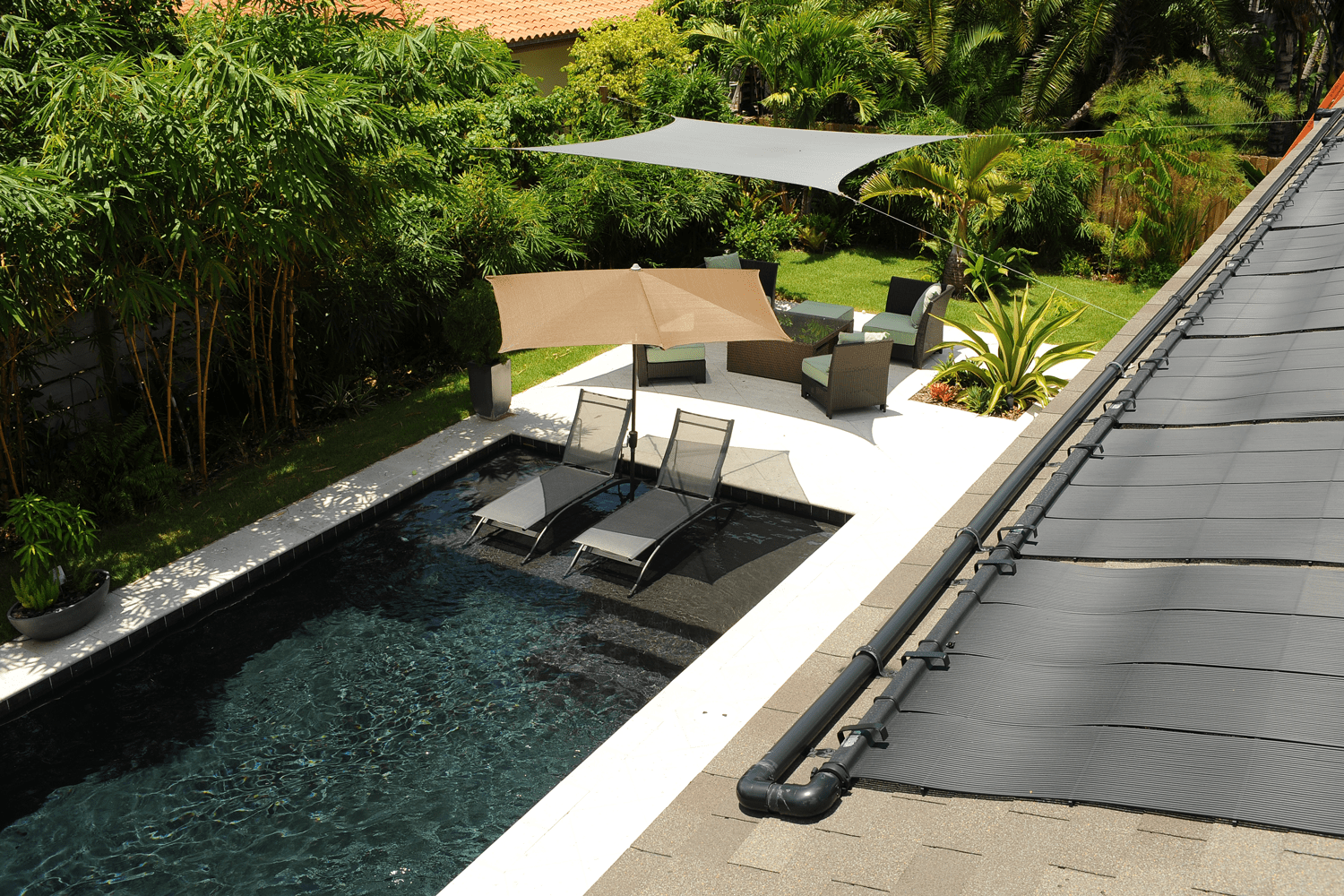
Installing the proper heater size heats the pool quickly and saves the pressure on the equipment. The needed Btu — or amount of energy output — from the heater is determined by the pool's surface area and the desired temperature rise.
A 105,000 Btu heater, for example, is required for a medium-sized, 500-square-foot pool that requires an average temperature increase of 15 degrees Fahrenheit.
Tips for Heating Your Pool
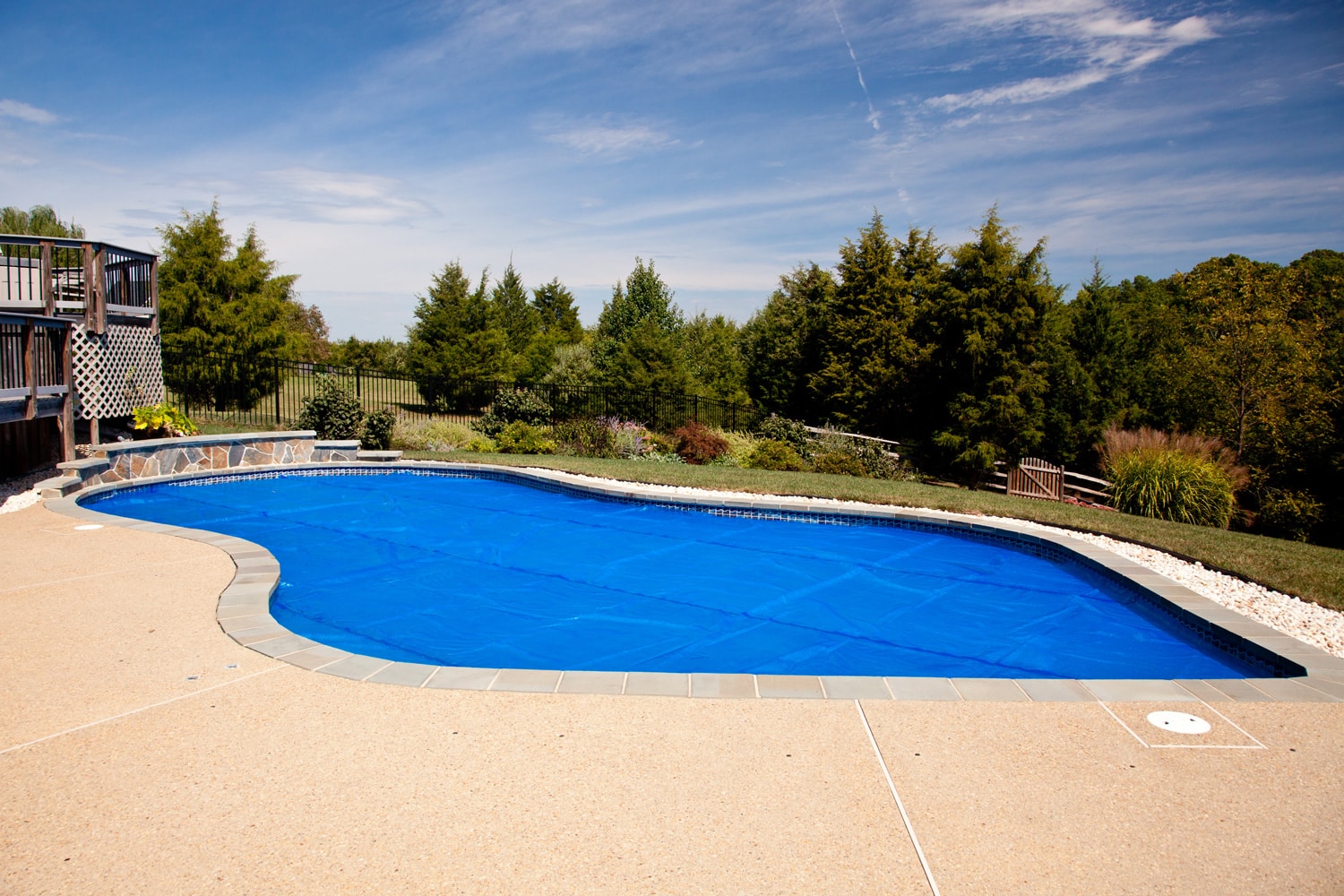
- If the pool will not be used over several days or more, it is more effective to let it cool before heating it the day before you intend to use it.
- In most cases, raising a pool to the ideal temperature takes roughly 24 hours. However, it still depends on your initial water temperature.
- If the pool is used frequently or if you want to use it continuously, it must be kept heated at all times, which raises the expense. Between uses, keep the pool covered with an insulated or solar cover to prevent heat loss.
- If you want to save money or energy, just use your heater when the pool water temperature falls below 78 degrees Fahrenheit.
- The air temperature becomes less essential when the water is suitably warm. If the pool heater keeps the water warm, temperatures in the 50s and even 40s can be endured.
Frequently Asked Questions
Is It Better to Leave the Pool Heater On All Night?
Never leave your pool heater turned on overnight. This is inefficient and will cost you more money than simply turning off the pool heater.
While many of us are aware that heating a pool might take many hours, doing so overnight negates the purpose of heating it in the first place.
What if you want to go swimming first thing in the morning? That takes us to the pool heater's use at night.
It is not always a good idea to heat the pool at night. Your pool's dark, moist, heated conditions might stimulate algae growth, which is another problem to deal with.
Pool owners have discovered that without any form of heat source, the water temperature in their pools may swiftly drop at night. It can be as high as four or five degrees in some cases.
That may not seem like much, but once you drop your toes into the water, you'll notice it's considerably colder than you anticipated.
How much heat will a pool lose overnight?
Overnight, an uncovered pool can lose up to 5 degrees. However, a decent cover can reduce that loss by half. When used at night or whenever your pool is not in use, the pool cover can help save fuel expenses by reducing heat loss, regardless of the type of heating you use.
Pools lose heat at night due to cooler temperatures and evaporation. If the temperature difference between the air and the pool water is too significant, the water in your pool may begin to evaporate.
But should you leave the pool heater turned on all night? Certainly not. You can continually heat the pool for a few hours until it reaches your desired temperature. Then you may cover the pool with a solar swimming cover.
If exposed to regular sunshine for five to seven days, a cover like this one from In the Swim can boost the temperature by up to ten degrees.
Even if the weather was cloudy the day before, the cover will keep the heat of the water in, preventing it from cooling as quickly as it would without one.
What time of day should I run my pool heat pump?
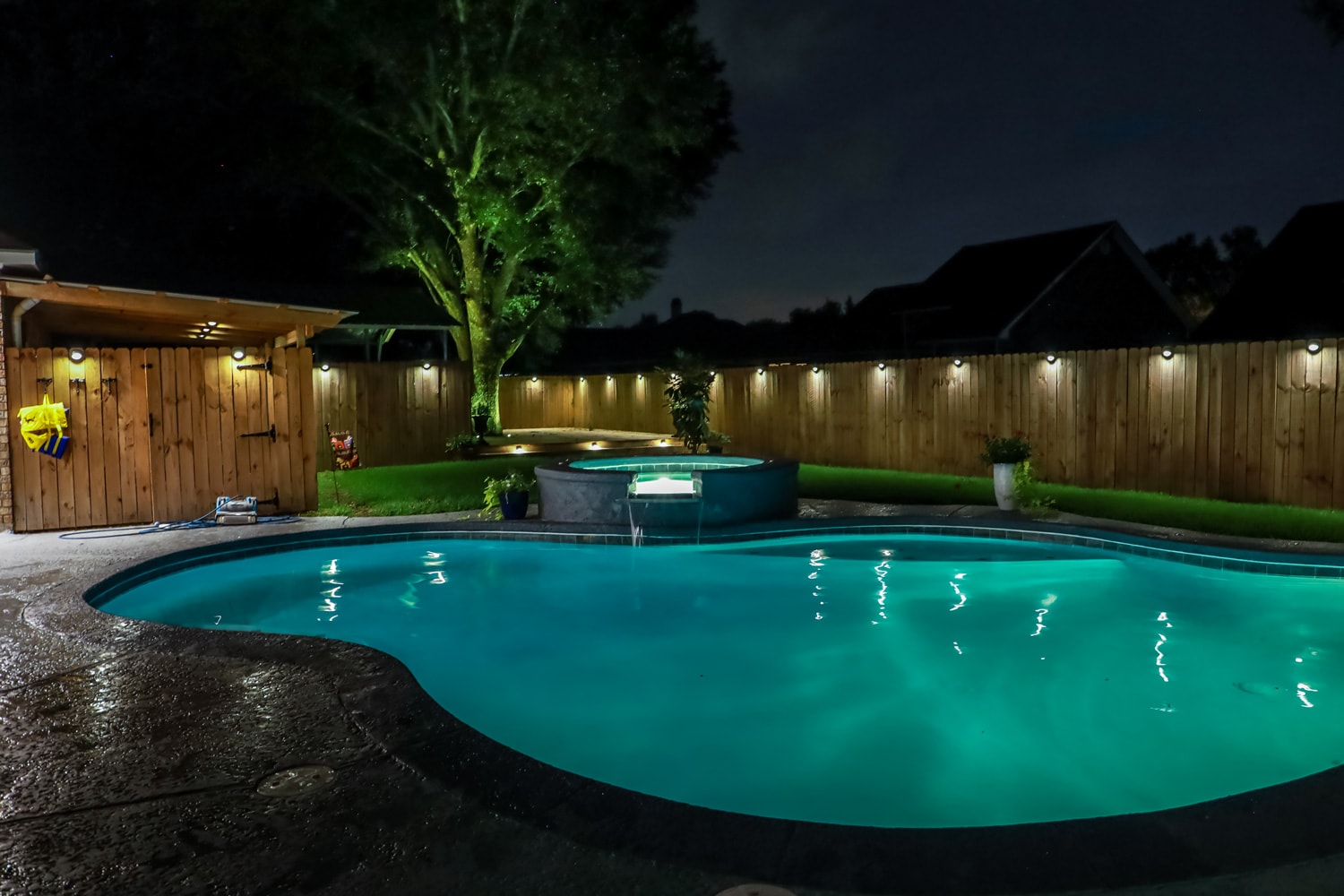
Heating your pool at night makes sense. If you let the water temperature drop, your pool heater will have to work harder the next morning.
The higher the output, the lower the heating efficiency, which means it takes longer for the heater to reach the specified temperature.
Some pool owners claim that heating their pools at night increases their monthly fuel use by 10 to 20%. Because the amount of fuel used is steady, the prices are also predictable.
If you have a heat pump, you can save some money at night. Off-peak electricity is possible. Off-peak power is often significantly cheaper than daytime power if it is available in your area. As a result, you must also consider this.
Another alternative is to keep the heater on but on a low level all day. The pool water temperature will not rise by more than a few degrees, but it will remain stable.
Takeaway
Now that you have an idea when to schedule your pool heater, you can now warm your pool any time of the year! However, if you are unsure because of your lack of experience, it is always advisable to contact specialists to handle the installation work.
If you enjoyed this article, you might be interested in these related articles:
